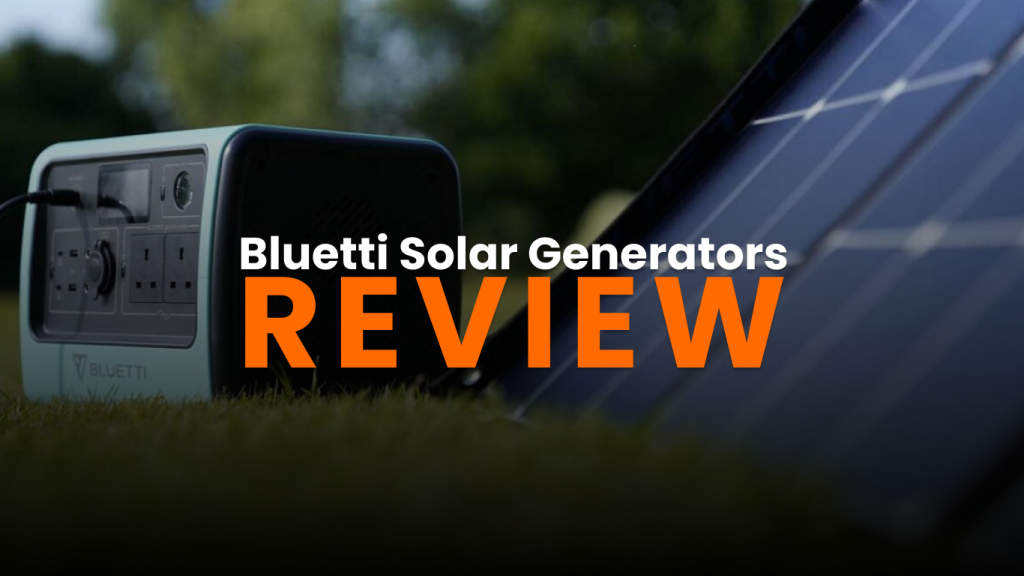With more frequent power outages and a growing demand for portable energy, solar generators have become a key solution. Bluetti, a Chinese brand under Shenzhen PowerOak, offers a range of solar-powered kits that pair solar panels with portable power stations. Taken together, these units create solar generators—all-in-one systems that convert sunlight into electricity with components like batteries, inverters, and charge controllers built in. So how well does Bluetti deliver? Let’s dive into tech, performance, pricing, and more.
Who is bluetti?
Bluetti is the trademarked product line of Shenzhen PowerOak Newener Co., Ltd., founded in 2013 in Guangdong, China. The name symbolizes “Blue Sky, Tomorrow, Technology, Innovation.” With a worldwide reach—including branches in the U.S., Germany, Japan, and Australia—Bluetti focuses on portable power for campers, sailors, and homeowners preparing for outages. Their solar generators combine large batteries, solar panels, inverters, and multi-stage charge controllers for a complete setup.
What is a solar generator?
A solar generator includes two main components:
- Solar panels: Absorb sunlight and convert it into DC power.
- Power stations: Combine battery storage, inverters (to produce AC power), and smart charge controllers.
The built-in inverter transforms the DC battery output into AC power that can run household appliances, tools, chargers, and other devices.
Performance and capabilities
Bluetti’s product lineup spans from compact 250 Wh power stations to modular systems exceeding 5 kWh. With expansion batteries, total capacity can reach up to 36 kWh, rivaling home solutions like Tesla Powerwall—while offering portability.
Peak inverter power ranges from around 600 W for small units to 5,000 W in top-tier models. While the higher-powered units can support essential home loads, running a full household continuously would require multiple units or supplements.
Solar panels offered by Bluetti range from 100 W to 420 W. Portable with kickstands, they’re convenient outdoors but cost more per watt than residential panels—around $900 for a 430 W model as of 2023.
Battery technology and lifespan
Bluetti relies on lithium iron phosphate (LiFePO₄) batteries, known for stability, longevity, and safety. These are rated for 2,500–6,000 charge cycles before capacity drops to 80%. With typical usage, that’s 5–10 years of reliable service. Power stations carry 2–5 year warranties depending on model.
Top models at a glance
eb3a – travel-friendly
- Capacity: 268 Wh
- Inverter output: 600 W
- Solar input: up to 200 W via built-in MPPT
- Fast charging: about 1.5 hours via AC, 1.8 with solar
- Compact (about 10 lbs) with USB-C, wireless charging, and UPS features
This makes it ideal for weekend trips or powering small devices at home. However, some users report system firmware failures that brick the unit—AC charging or solar input doesn’t work after minimal use.
ac300 + b300 – modular backup
- Core unit paired with up to four 12.3 kWh battery modules
- Inverter: 3,000 W pure sine wave
- Solar input up to 2,400 W
This expandable system offers robust emergency backup, but may need heavier infrastructure like multiple solar panels for fast recharging.
ep500pro – home backup
- Built-in 5,100 Wh LiFePO₄ battery
- Inverter: 3,000 W pure sine wave
- Optional bundle of three 350 W panels
- Lifetime estimate: over 3,500 cycles
- 5-year warranty
It can run essential appliances during power outages but requires space and weight support.
What’s good about bluetti?
- Solid tech platform: Pure sine inverters, MPPT controllers, and LiFePO₄ batteries
- Broad model range: From compact units to home backup solutions
- Global availability and pricing: Competitive with market averages Durability and design: Most models have sturdy construction and attention to portability
- Whitelist of outlets: Multiple AC, USB, DC, even wireless charging included
Reported issues
Despite high-performance claims, Bluetti users post recurring complaints:
- Quality control: Several eb3a units fail after minimal use—often due to AC charging or solar input faults
- Customer service concerns: Response times can stretch to weeks or months; replacements or refunds can be delayed
- Heft for portability: Even compact units weigh 10–40 lbs, making them less convenient than advertised
- App dependency: Bluetti includes remote app features, but some users find firmware and connectivity issues unnecessary
Real-world feedback
Reddit threads show a split:
“Two EB3As bricked same way… Bluetti says ‘not a known issue’” (reddit.com)
“AC200L went out, but customer service replaced it quickly” (reddit.com)
TopConsumerReviews gives Bluetti an ‘F’ rating, citing poor post-sale support despite strong initial performance. Meanwhile, SolarReviews praises LiFePO₄ lifespan and key tech.
Concluding thoughts
Bluetti offers a compelling suite of solar generators with modern battery tech, solid design, and a range of capacities—from portability to residential backup. Yet persistent quality and service issues mean buyers should weigh convenience against potential risks.
Here’s what to remember:
- Choose eb3a or ac2a for trips, small devices, and budget-conscious users.
- Pick ac300 + b300 or ep500pro for serious backup power at home.
- Expect LiFePO₄ life spanning 3,500–6,000 cycles—around a decade.
- Watch for firmware updates, but proceed cautiously and inspect arrival packages.
- Factor in weight if you’ll carry it regularly.
If you want premium backup power or off-grid energy, Bluetti is worth considering—with careful model choice, setup, and backup plans. But if you’re seeking bulletproof reliability and responsive customer service, weigh competing brands or prepare for hiccups during your warranty period.
Sunhub is here to support your choice. We can help you compare Bluetti with brands like EcoFlow, Anker, or Jackery based on performance, pricing, and support.
Contact us any time for recommendations and real-world insights.




